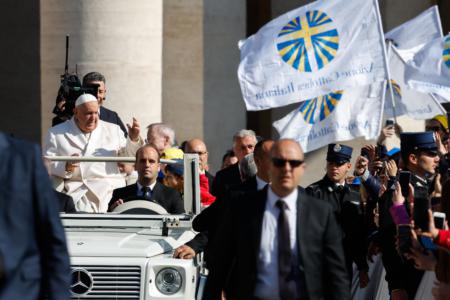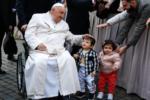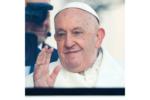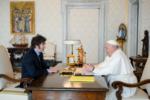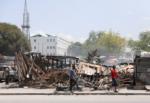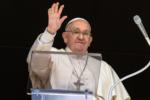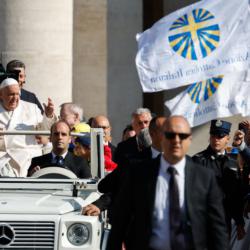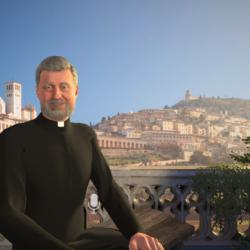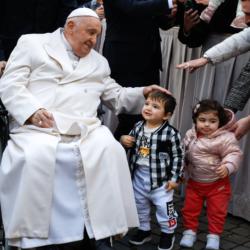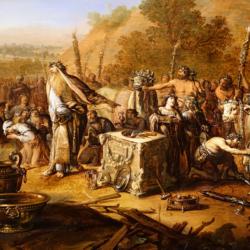After year of healing, much still to be done
Amidst the chaos of one of the biggest scandals ever to rock the Catholic Church — with over 500 lawsuits pending in the courts, ever-growing protests demanding justice for victims of clergy sexual abuse, and the specter of bankruptcy hanging over the archdiocese — Cardinal Bernard Law submitted his resignation to Pope John Paul II.
Few will easily forget that fateful Friday the 13th one year ago.
"I am profoundly grateful to the Holy Father for having accepted my request to resign as Archbishop of Boston," Cardinal Law said in a statement released in Rome shortly after his meeting with the pope. "It is my fervent prayer that this action may help the Archdiocese of Boston to experience the healing, reconciliation and unity which are so desperately needed."
"To all those who have suffered from my shortcomings and mistakes, I both apologize to them and beg forgiveness," the statement continued. "The particular circumstances of this time suggest a quiet departure. Please keep me in your prayers."
Simultaneous with accepting Cardinal Law’s resignation, Pope John Paul II appointed West Regional bishop and rector of St. John Seminary Bishop Richard G. Lennon as Apostolic Administrator of the Archdiocese of Boston.
Bishop Lennon, ordained to the episcopate for just over a year, was suddenly thrust into the world-wide media spotlight.
He immediately set to work to promote healing among the fractured community of the archdiocese through spiritual renewal.
"If I had to pick an important challenge, I would base it in an area of a return to a deepened faith in God. I truly believe that as we are closer to God -- as we are persons and a community closer to God -- we are stronger in addressing the other issues. Many of the other issues, as important as they are, can only be addressed from a very solid perspective of faith. Without that, the other issues are much more difficult to address in a comprehensive Christian way," he told The Pilot in an interview shortly after being named to head the archdiocese.
Perhaps the most poignant symbol of his commitment to the promotion of healing in the archdiocese came when he went out to speak with the clergy abuse victims and protestors who had been demonstrating outside the cathedral doors following his first public Mass as Apostolic Administrator.
"As I was greeting the people at the back of the cathedral, the idea came to me that there are other people who need to be greeted also, and those are the ones who are outside, and since they are not here, I need to go to them," he explained to The Pilot in an interview after the Mass.
Bishop Lennon went on to hold numerous meetings with clergy abuse victims and their families during his tenure as apostolic administrator.
To promote reconciliation among the faithful at large, Bishop Lennon instituted the archdiocesan-wide Lenten Program of Prayer and Conversion.
"The most important thing is at least to begin to make our churches safe places of worship, safe places of life, of spiritual life, and this program is intended to move us forward in that direction," he said in a written statement explaining the Lenten program.
But Bishop Lennon’s concern was not solely with spiritual renewal. Under his leadership, several administrative steps were taken to ensure the safety of children within the archdiocese, many of which had been initiated by Cardinal Law. The archdiocese’s Policies and Procedures for the Protection of Children that govern how allegations of child sexual abuse are reported and handled were finalized. The Protecting God’s Children program designed to help participants recognize the symptoms of abuse and identify child predators was made mandatory for all parish workers and volunteers. Talking about Touching, an abuse prevention program for children, was incorporated into every Catholic school’s curriculum.
Despite progress in these areas, settlements with the victims of clergy sexual abuse proved elusive.
It took the appointment of a new Archbishop of Boston to break that impasse.
On July 1, Pope John Paul II named Seán P. O’Malley, well respected for his work in troubled dioceses, the ninth bishop of Boston.
"As your Archbishop, I am your Shepherd," he said during the homily at his Installation Mass. "As a friar, I am your brother, and I have come to serve you, to wash your feet as Jesus says and to repeat the great commandment: Love one another as Christ loves us."
From the very beginning, Archbishop O’Malley indicated his desire to reach out to the survivors of clergy abuse.
"Your pain will not be in vain if our Church and our nation become a safer place for children," he said, addressing the survivors during the homily. "Despite the understandable anger, protests and litigation, we see you as our brothers and sisters who have been wronged."
One week into his new assignment, the archbishop appointed Attorney Thomas Hannigan, of the law firm Ropes and Gray, as lead counsel for the archdiocese in legal matters dealing with the sexual abuse of minors by clergy. Attorney Hannigan had helped Archbishop O’Malley settle abuse cases concerning former priest James Porter when he was Bishop of Fall River.
"It is my hope that Attorney Hannigan's expertise in facilitating settlements in matters such as this will move the process towards a just and timely resolution," said the archbishop in a July statement.
One month later, a settlement offer was announced.
Despite the incredible changes that have taken place within this past year, much work has yet to be done.
"We must continue to work to reestablish trust by those who have been hurt -- not just the survivors and their families, but also the members of our parishes and communities who have been scandalized and have lost their trust in the Church because of what has happened," said Father Christopher Coyne, spokesperson for the archdiocese.
"I think that a lot of our efforts and resources have been devoted -- and rightly so, I might add -- to bring about healing during this time of crisis but I think that we must rediscover the heart of our Catholic faith -- to spread the Gospel, to promote Church teaching and to continue in the great works of charity," he continued. "We need to recover who we are and what we do."
